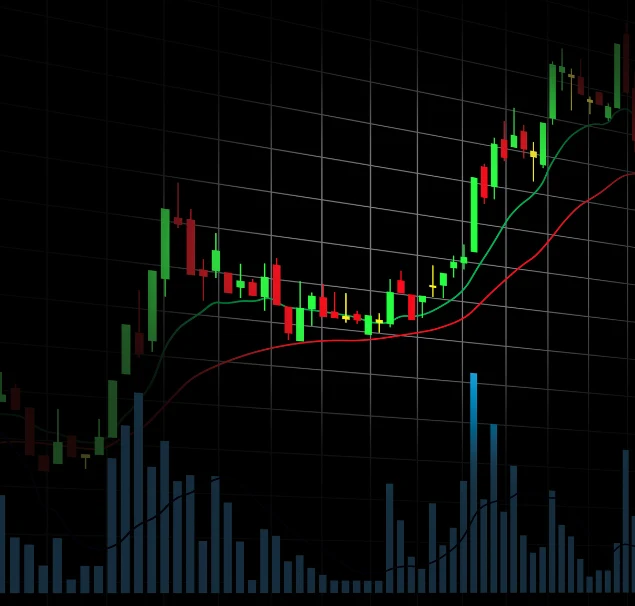
Introduction: Definition of a Prop Trading Firm
A prop trading firm, short for proprietary trading firm, operates by investing its own capital in financial markets, as opposed to trading on behalf of clients. Unlike traditional asset management firms or hedge funds, prop firms primarily focus on short-term trading. They leverage various strategies including arbitrage, swing trading, and algorithmic trading to generate direct profit from market fluctuations. The key characteristic of a prop firm is that its primary source of revenue comes from its trading activities rather than from commission on client transactions.

Brief History and Evolution of Prop Trading
Proprietary trading has its roots in the early days of stock exchanges, where individual traders used their own capital to profit from market movements. Over time, this practice evolved, with banks and financial institutions establishing dedicated prop trading desks. However, the landscape of prop trading underwent a significant change following the 2008 financial crisis. Regulatory shifts, particularly the Volcker Rule under the Dodd-Frank Act, led many banks to downsize or close their prop trading operations. This created an opportunity for independent prop firms to flourish, capitalizing on technological advancements and the availability of sophisticated trading tools.
Table Of Content
- The Structure of Prop Trading Firms
- How Prop Trading Firms Operate
- Types of Prop Trading Firms
- The Role of a Prop Trader
- Benefits and Challenges of Working with a Prop Firm
- Key Differences Between Prop Firms and Traditional Brokerages
- The Evolution of Prop Trading Firms
- How to Get Started with a Prop Trading Firm
- Conclusion
The Structure of Prop Trading Firms
Organizational Structure
The organizational structure of a prop trading firm typically consists of a hierarchy that includes positions ranging from junior traders to senior traders, and often extends to risk managers and a management team. Junior traders usually start with a limited trading capital and are closely supervised, while senior traders have more autonomy and larger capital allocations. The management team oversees the firm’s overall strategy, risk management, and compliance with regulatory requirements.
Funding and Capital Allocation
Funding in prop trading firms primarily comes from the firm’s own capital. This capital is allocated to traders based on their experience, track record, and the firm’s assessment of their trading strategy’s potential. New traders usually start with a smaller capital base and, as they demonstrate consistent profitability and risk management skills, they may be allocated more capital. The firm’s capital allocation strategy is crucial, as it balances the need to maximize profits while minimizing risk.
Risk Management Strategies
Risk management is a critical component of a prop trading firm’s structure. These firms employ various strategies to mitigate risk, including setting maximum loss limits, implementing stop-loss orders, and diversifying trading strategies. Senior traders and risk managers monitor trading activities to ensure compliance with these risk parameters. Advanced firms may also use sophisticated software to analyze risk in real-time and adjust strategies accordingly. Effective risk management protects the firm’s capital and sustains its long-term profitability.
How
Prop Trading Firms Operate
Daily Operations and Trading Activities
Prop trading firms operate on a daily basis with a focus on short-term, and sometimes medium to long-term, trading strategies. Traders at these firms are involved in the continuous analysis of financial markets, looking for profitable trading opportunities. The day typically begins with a review of global market news, economic data, and any overnight market changes. Traders then execute trades based on their strategies, which might include day trading, swing trading, arbitrage, or algorithmic trading. Throughout the day, traders monitor open positions and market conditions, adjusting strategies as necessary.
Role of Technology and Software
Technology and software play a crucial role in the operations of prop trading firms. These firms rely heavily on advanced trading platforms, algorithmic trading software, and sophisticated data analysis tools. The technology enables traders to execute trades at high speed, access real-time market data, and use automated trading strategies. Many prop firms develop proprietary trading software tailored to their specific trading methodologies. This tech-centric approach helps in efficient risk management, market analysis, and in gaining an edge in the highly competitive trading environment.
Profit-Sharing Models
Profit-sharing is a key aspect of compensation in prop trading firms. The model varies from firm to firm but generally involves sharing a portion of the trading profits between the trader and the firm. For new traders, the profit share might be lower, and as they gain experience and demonstrate consistent profitability, their share of profits typically increases. Some firms may also require traders to contribute a small amount of their own capital, which can influence the profit-sharing percentage. This model incentivizes traders to perform well while aligning their interests with those of the firm.
Types of Prop Trading Firms
Different Models of Prop Firms
Prop trading firms generally fall into two main categories: traditional and no evaluation.
Traditional Prop Firms:
These firms require traders to undergo a rigorous evaluation process or training program before they can trade with the firm’s capital. Often, these evaluations involve trading in a simulation environment to demonstrate their trading skills and risk management.
No Evaluation Prop Firms:
In contrast, no evaluation prop firms provide traders with capital without a prior evaluation phase. Traders can often start trading with real money right away, which is appealing to those who want to bypass lengthy assessment processes.
Specializations
Prop trading firms also specialize in various financial markets, catering to different types of traders and strategies:
Forex Prop Firms:
These firms focus on the foreign exchange market, one of the most liquid and dynamic markets in the world. Forex prop trading involves trading currency pairs, taking advantage of fluctuations in exchange rates.
Stocks Prop Firms:
Specializing in equities, these firms engage in trading various stocks. They might focus on different strategies such as day trading, swing trading, or long-term equity investments.
Commodities Prop Firms:
These firms trade in commodity markets, dealing with physical goods like gold, oil, agricultural products, and more. Commodity trading requires a deep understanding of different market factors, including supply and demand dynamics and geopolitical influences.
Each type of prop firm offers unique opportunities and challenges, and traders often choose a firm based on their area of expertise and preferred trading style.
The Role of a Prop Trader
Responsibilities and Duties
A prop trader’s primary responsibility is to trade the firm’s capital with the aim of generating profits. Their day-to-day duties include:
– Analyzing market trends and financial data to make informed trading decisions.
– Executing trades in line with the firm’s strategies and risk parameters.
– Continuously monitoring and managing open positions to maximize profits and minimize losses.
– Keeping abreast of global economic events and their potential impact on the markets.
– Collaborating with other traders and sharing insights to enhance trading strategies.
Required Skills and Qualifications
Essential skills and qualifications for a prop trader include:
– Strong analytical skills to interpret market data and economic news.
– Proficiency in mathematical and statistical concepts.
– Ability to make quick decisions under pressure.
– Good risk management and discipline.
– Knowledge of trading platforms and technical analysis tools.
– A degree in finance, economics, or a related field can be beneficial, but not always mandatory. Many firms value practical trading experience and a proven track record over formal education.
Career Path and Growth Opportunities
The career path of a prop trader typically follows this trajectory:
– Starting as a junior trader or an intern, often with lower capital allocation and under supervision.
– Progressing to a senior trader role with increased autonomy and higher capital allocation.
– Potentially moving into a risk management or strategy development role.
– Exceptional traders might have opportunities to partner with the firm or participate in profit sharing at a higher level.
– Continuous learning and adaptation to market changes are crucial for career advancement in prop trading.
Benefits and Challenges of Working with a Prop Firm
Advantages for Traders
Access to Larger Capital:
Prop firms provide traders with more capital than they might be able to access independently. This can significantly amplify profit potential.
Advanced Technology and Tools:
Prop firms often have access to state-of-the-art trading tools and platforms, which can be prohibitively expensive for individual traders. Learning and Development Opportunities: Many prop firms offer training programs and mentorship, allowing traders to enhance their skills and knowledge.
Risk Mitigation:
By trading with the firm's capital, traders can potentially avoid the personal financial risk that comes with independent trading.
Networking and Community:
Prop firms often have access to state-of-the-art trading tools and platforms, which can be prohibitively expensive for individual traders. Learning and Development Opportunities: Many prop firms offer training programs and mentorship, allowing traders to enhance their skills and knowledge.
Common Challenges
How to Overcome Them
Performance Pressure:
The need to consistently perform well can be stressful. Traders can manage this by maintaining a disciplined trading strategy and focusing on long-term performance rather than short-term gains.
Compliance with Firm Rules:
Adhering to the firm's trading rules and risk parameters might limit some trading styles. Traders should align their strategies with the firm's guidelines while finding ways to optimize their approach within these boundaries.
Profit Sharing:
While traders have access to more capital, they also have to share profits with the firm. Understanding and accepting the profit-sharing model as a trade-off for the provided resources and capital is essential.
Market Adaptability:
Markets are constantly changing, and strategies that work today may not work tomorrow. Continuous learning and adaptability are key to overcoming this challenge.
Key Differences Between Prop Firms and Traditional Brokerages
Comparison of Business Models
Prop Firms and traditional brokerages operate on fundamentally different business models:
Prop Firms:
Proprietary trading firms use their own capital to make trades. The primary goal is to earn profits directly from market activities. They often employ aggressive strategies and focus on short-term trading. Revenue is generated mainly through trading gains.
Traditional Brokerages:
These institutions primarily act as intermediaries for clients’ trades. They earn revenue through commissions, fees for services like investment advice, and sometimes from spreads on trade executions. Their focus is more on providing a platform for clients’ trading activities rather than engaging in trading themselves.
Trader Autonomy and Decision-Making
The level of autonomy and decision-making power varies significantly between the two:
Prop Firms:
Traders at prop firms usually have a high degree of autonomy in their trading decisions, within the risk parameters set by the firm. They are encouraged to develop and follow their own trading strategies.
Traditional Brokerages:
Brokers and traders at traditional brokerages often work more closely with clients, with their trading activities largely influenced by clients’ instructions and goals. The focus is more on executing trades as per client directives, rather than independent decision-making.
These key differences highlight the distinct environments and operational philosophies of prop firms and traditional brokerages, each catering to different aspects of the financial trading world.
The Evolution of
Prop Trading Firms
Historical Perspective
Proprietary trading, commonly known as prop trading, has evolved significantly from its early days. Initially, prop trading was predominantly conducted by large financial institutions like banks and investment firms, especially in the second half of the 20th century. These institutions allocated substantial capital to their proprietary trading desks, where skilled traders engaged in trading various financial instruments for the firm’s profit. Prop trading was considered a high-risk, high-reward venture and was a significant part of many investment banks before the 2008 financial crisis.


Impact of Regulatory Changes and Market Evolution
The 2008 financial crisis marked a turning point in the world of prop trading, leading to major regulatory changes. The Dodd-Frank Wall Street Reform and Consumer Protection Act, particularly the Volcker Rule, significantly restricted the proprietary trading activities of banks. This rule aimed to reduce systemic risk by preventing banks from making speculative trades with their own capital. As a result, many banks had to dismantle their prop trading desks.
This regulatory shift led to a migration of talent and capital towards hedge funds, private equity firms, and independent trading firms, which were not subject to the same constraints. The evolution of prop trading is also characterized by technological advancements. The transition from open-outcry systems in physical trading pits to electronic trading in the 1970s marked the beginning of a new era. This transition enabled faster and more efficient trade execution and the rise of algorithmic and high-frequency trading. Technological innovations have allowed prop firms to leverage advanced data analysis, algorithmic strategies, and remote trading capabilities, particularly emphasized during the COVID-19 pandemic.
In modern markets, prop trading continues to adapt, with a shift in focus towards cryptocurrencies and forex markets, driven by new-age firms that adapt the traditional model to suit the needs of modern traders.
How to Get Started with a Prop Trading Firm
Steps to Becoming a Prop Trader
Education and Background:
While a bachelor’s degree in finance or related fields can be beneficial, it’s not always necessary. Prop trading firms value practical trading experience and proven track records. Knowledge of financial markets, analysis, and decision-making under pressure are crucial.
Choosing the Right Path:
There are different ways to enter the prop trading world. You can apply for a funded trading program, where you’ll be evaluated and potentially receive a proprietary-funded account. Alternatively, you could join a traditional prop trading firm, often starting with an internship, or find independent investors willing to fund your trading based on your track record.
Considerations Before Joining a Firm:
It’s important to consider the firm’s monthly fees, profit split, trading guidelines, and risk management rules. Additionally, assess the trading fees and scaling plans offered by the firm. Credibility and reputation of the firm are crucial, so check user reviews and the firm’s history.
Finding the Right Firm for Your Trading Style:
Your trading style, including risk tolerance and preferred trading strategy, will influence which prop firm is the best fit. For example, some traders prefer firms with no time limit challenges, allowing for more flexible strategy execution, while others might look for firms with specific market focuses.
Creating a Sustainable Trading Plan:
A well-thought-out trading plan that aligns with both the firm’s requirements and your personal trading style is essential. Successful traders often specialize in one or a few assets, use low leverage, and focus on scaling their accounts over time.
Necessary Training and Education
– Continuous learning is key in prop trading. This includes understanding market dynamics, risk management, and trading psychology.
– Many prop firms provide educational resources and mentorship programs to help traders develop their skills.
Applying and Starting Your Career
Once you’ve identified potential firms and prepared accordingly, tailor your resume to highlight relevant skills and experience.
Begin with applying for entry-level positions or funded programs, depending on your chosen path.
Remember, prop trading is highly competitive and requires a unique set of skills, including a deep understanding of the markets, quick decision-making, and effective risk management. Building a career in prop trading demands dedication, continuous learning, and an ability to adapt to rapidly changing market conditions.
Conclusion
Recap of the Key Points
In this exploration of prop trading firms, we’ve covered various aspects crucial to understanding this dynamic sector of the financial industry:
Definition and Evolution: Prop trading firms, utilizing their own capital for trading, have evolved significantly, especially post the 2008 financial crisis which led to regulatory changes and a shift away from traditional bank-based prop trading desks.
Structure and Operation: We delved into the organizational structure, funding, and risk management strategies of prop firms, highlighting their unique approach compared to traditional brokerages.
Roles and Opportunities: The role of a prop trader was dissected, emphasizing the responsibilities, required skills, and potential career paths within these firms.
Benefits and Challenges: While prop trading offers access to large capital and advanced tools, it also comes with challenges like performance pressure and adherence to firm-specific rules.
Types of Prop Firms: From traditional to no evaluation models, and specializations in various markets like forex, stocks, and commodities.
Getting Started: We provided insights into the steps for becoming a prop trader, including the necessary training, education, and how to find the right firm for individual trading styles.
Final Thoughts on the Future of Prop Trading Firms
Looking ahead, the future of prop trading firms appears to be shaped by continued technological advancements, regulatory changes, and evolving market dynamics. The industry is likely to witness further innovations in trading strategies and tools, adapting to a global financial landscape that is increasingly interconnected and technologically driven. As the sector evolves, prop trading firms will continue to offer significant opportunities for traders who are adaptable, skilled, and well-versed in market dynamics and risk management. The key to success in this field will remain a combination of strategic acumen, technological savvy, and a deep understanding of the financial markets.
